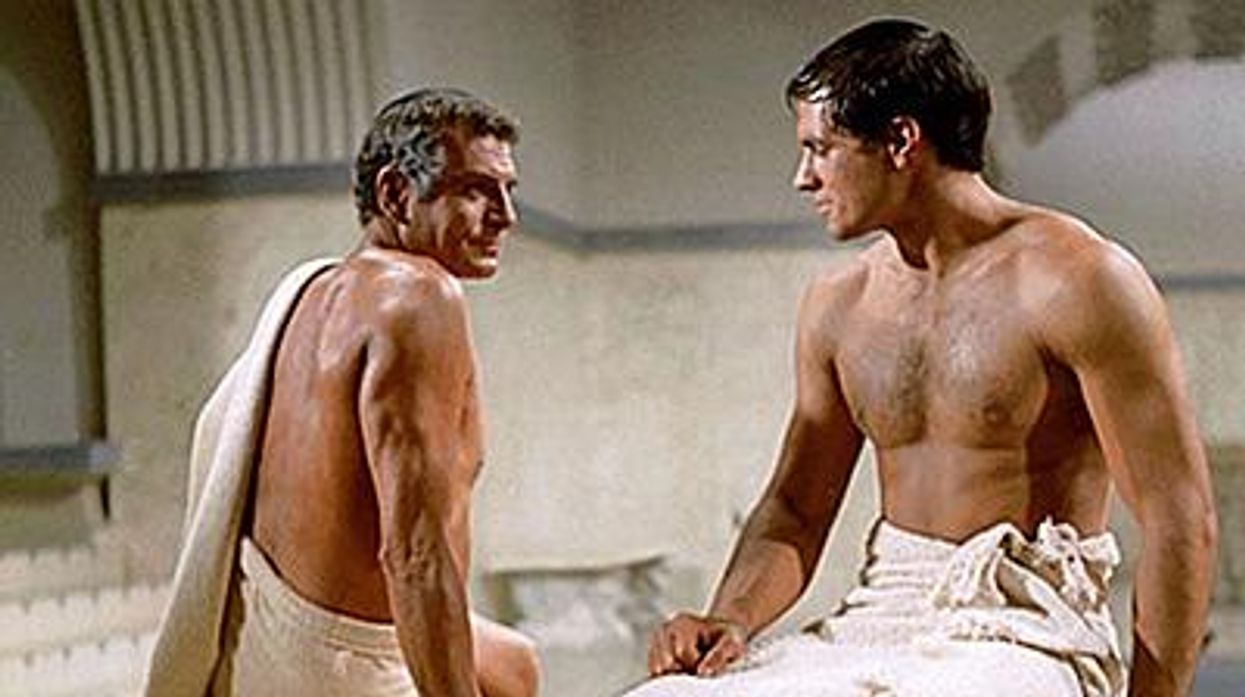
Explore the rich, wet beginnings of bathhouse culture.
January 08 2015 8:00 AM EST
xtyfr
By continuing to use our site, you agree to our Privacy Policy and Terms of Use.

Explore the rich, wet beginnings of bathhouse culture.
Our culture has abandoned its closets. And this is a good thing -- but in doing so, we've lost the bathhouse. In the beginning, gay bars had mysterious names like Incognito and The Mask and rarely had windows. So many of them have vanished from our cities thanks, in no small part, to the easy availability of sex via apps and websites. Bathhouses are in severe decline, and the few that remain are widely seen as centers for illicit drug use and transmission points of STIs.
They were always sexy cruizing zones and always home to some mind-altering substances, but in decades past, that made little difference -- the bathhouse was the place to be. The bathhouse has a long, storied history as not only a place of sexual assignation but as a cultural hub -- Bette Midler, after all, started her career singing in them. Let's take a trip down the slippery tiles of memory lane.
Just a couple of executives looking for a relaxing evening at the baths in Times Square in the 1950s.
See more bathhouse history on the following pages >>>
The baths in the Bowery, about 1910. A bit rough around the edges, but still fun.
This piece was painted by mid-century physique artist Quaintance. Thankfully there were always a few friends to help you dry off.
In Russia at the turn of the last century, there were enormous and luxurious bathhouses for wealthy men. Seen here: the Yegorev brothers' swanky joint.
Naked attendants washed and massaged the patrons in this Russian bathhouse.
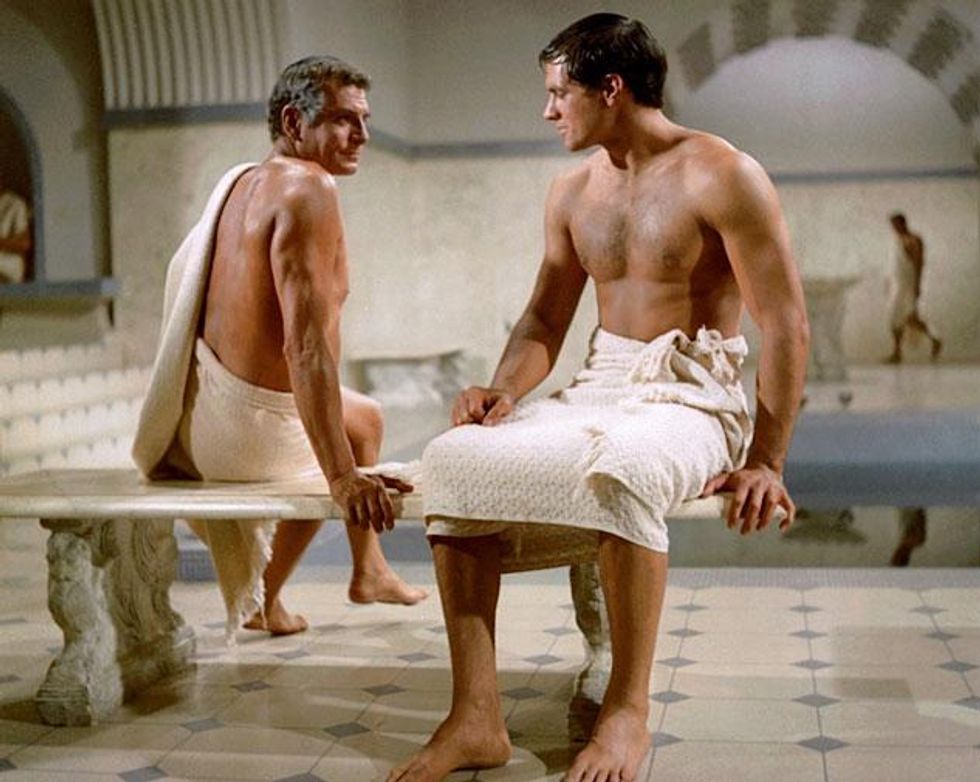
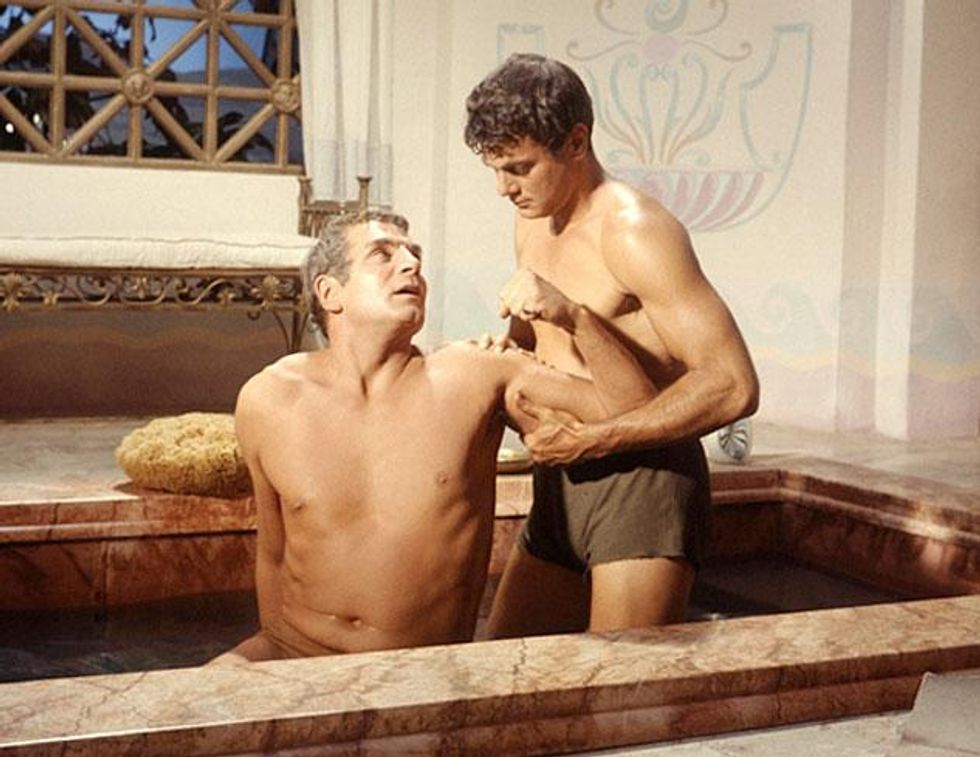
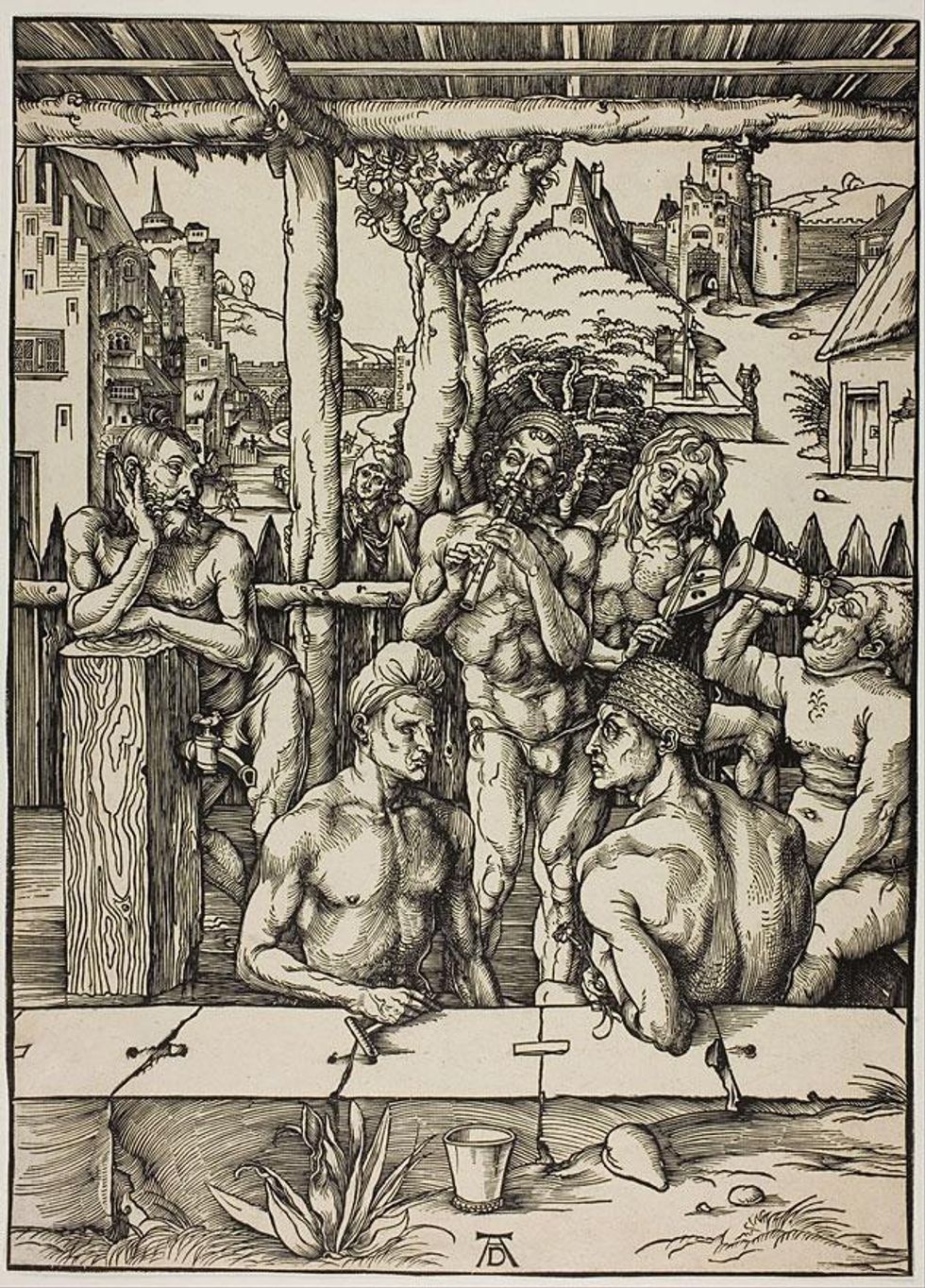
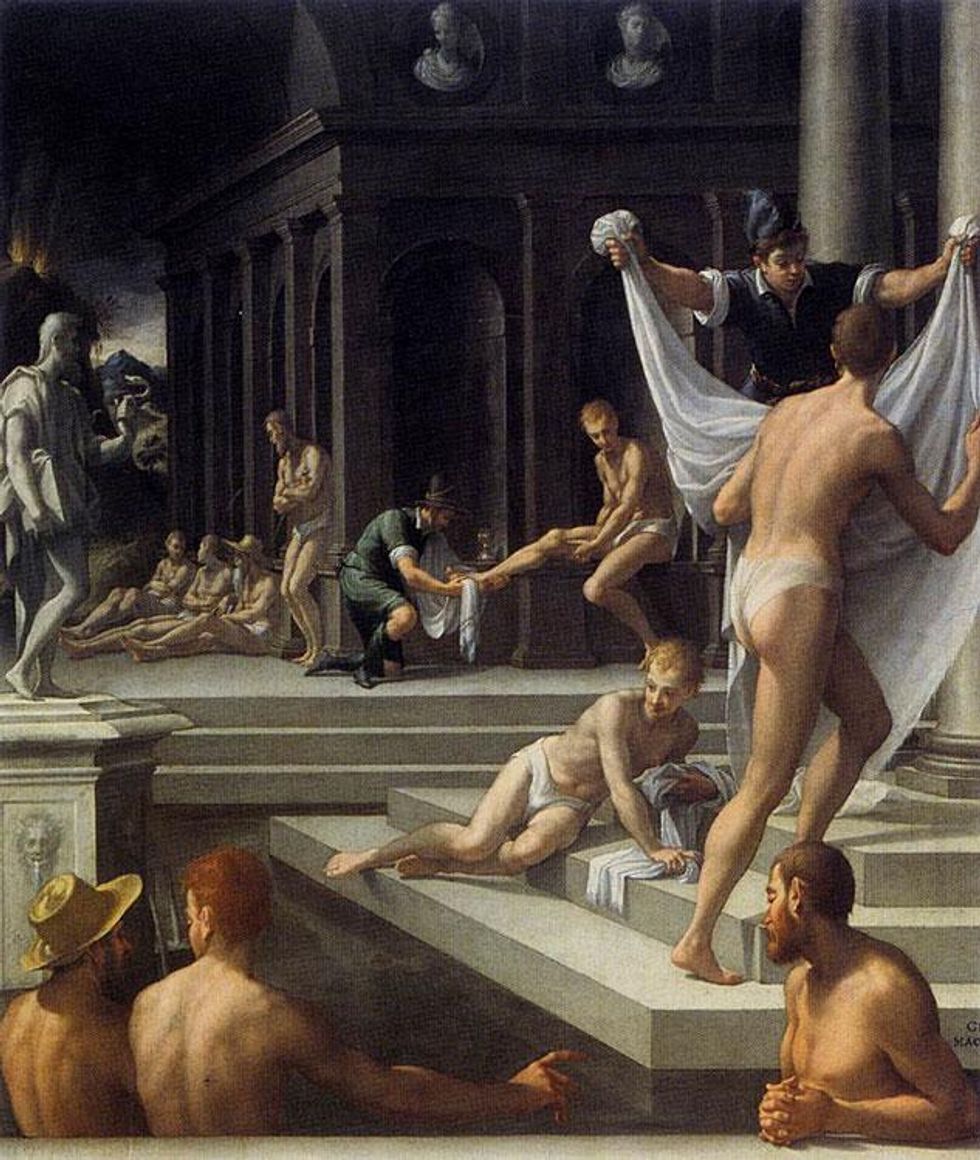
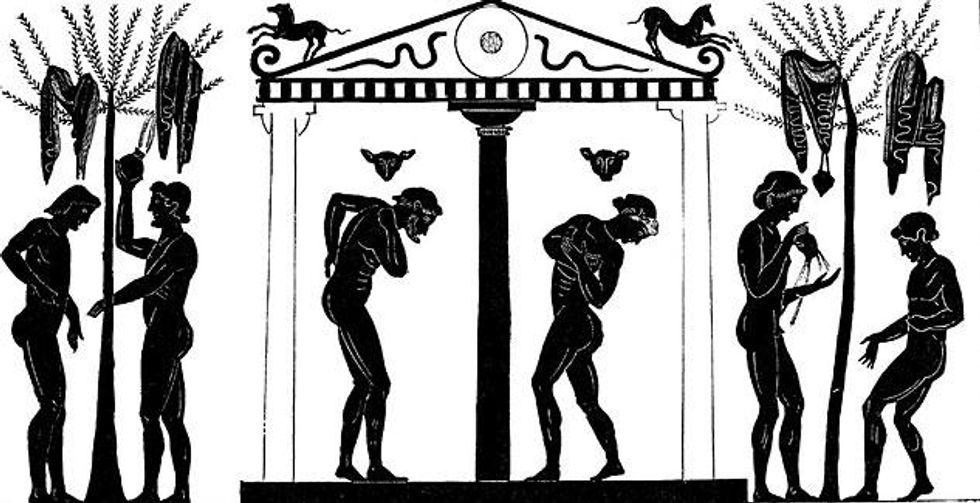
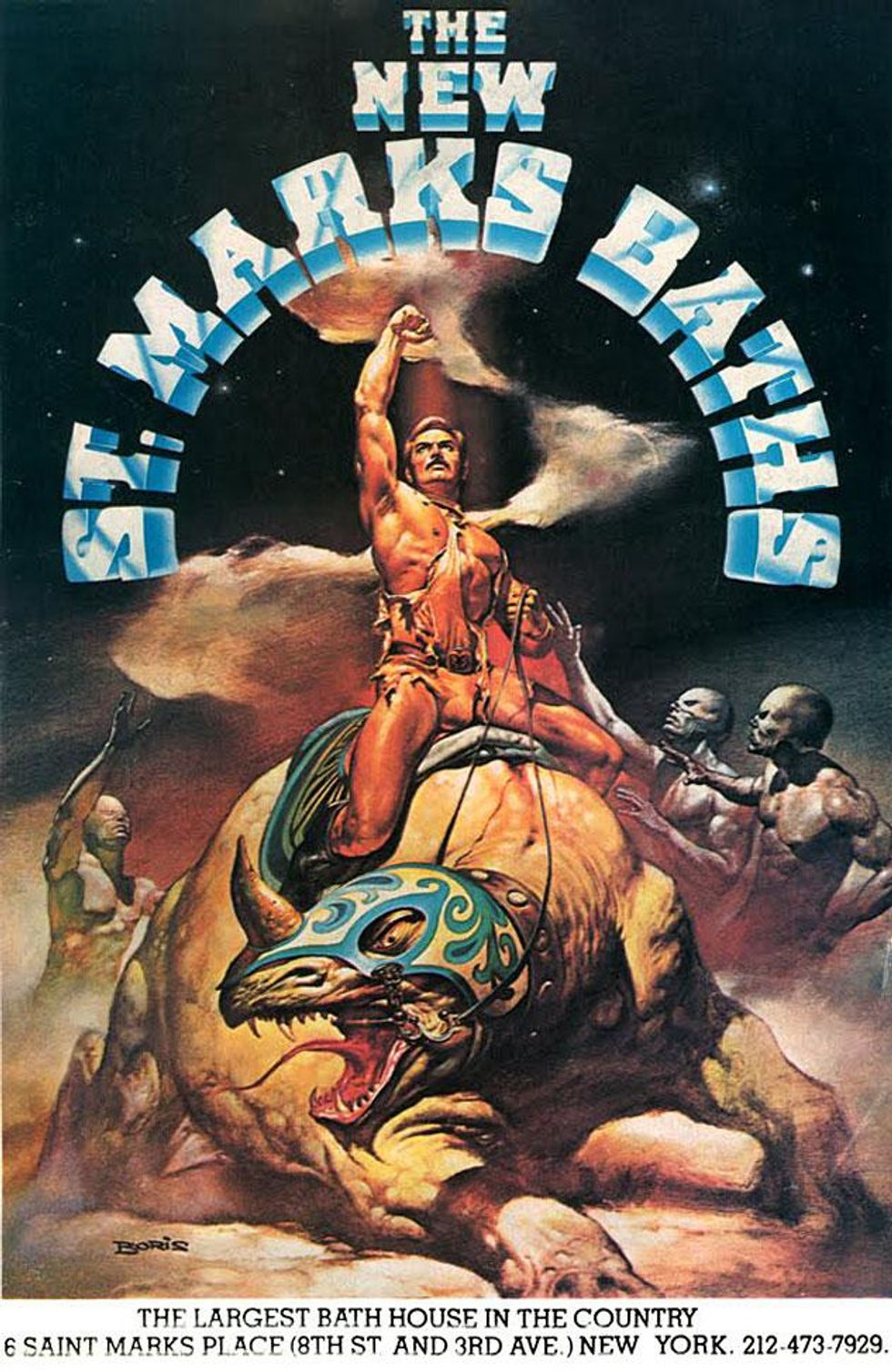
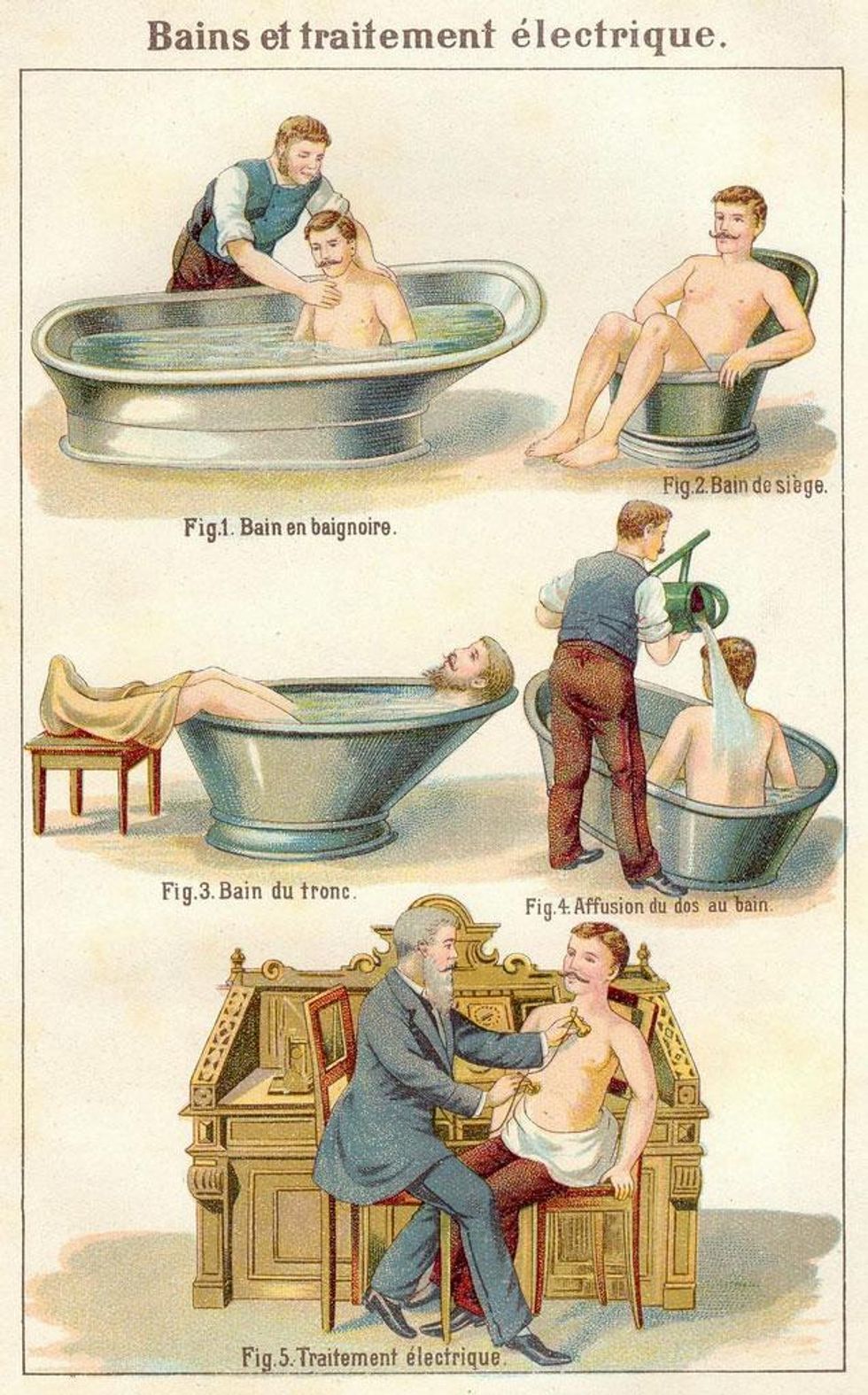
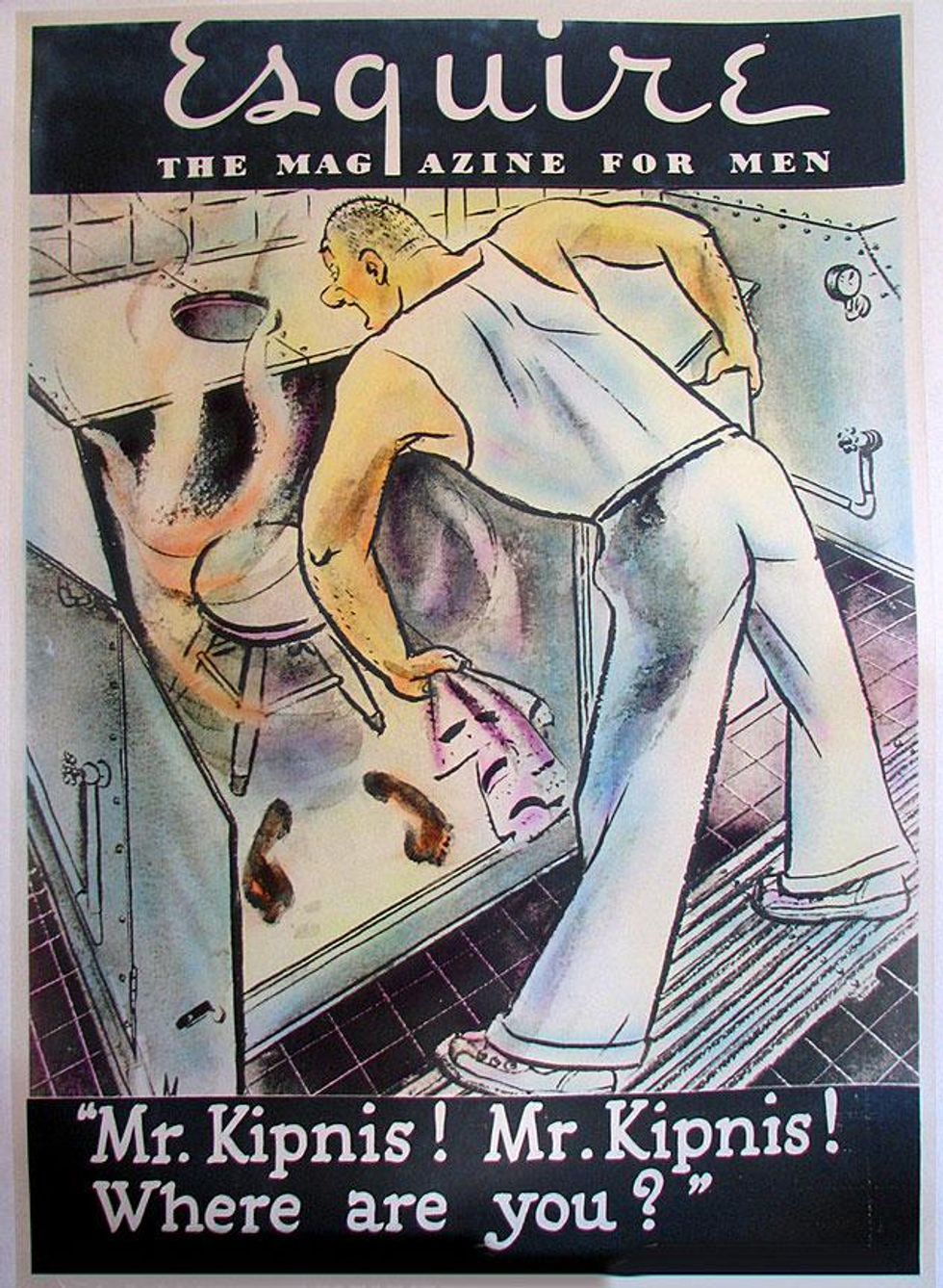
Before the sexual revolution and the openness of gay liberation, if a guy needed a friend for the night, he made his way to the YMCA -- hence the song, here performed by the Village People in Can't Stop the Music (1980). But by the time this film was made, bathhouse culture had exploded, and places like Dave's Bath Club Chain, the Everard, and the St. Marks, among others, had replaced the YMCA, and it became the place where only the most closeted guys trawled the hallways.
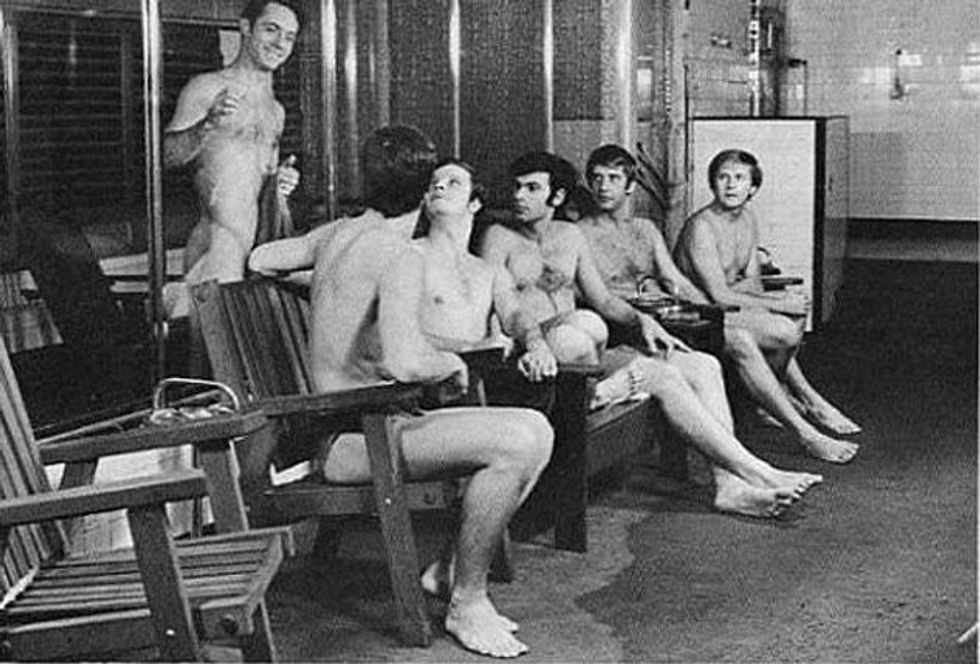
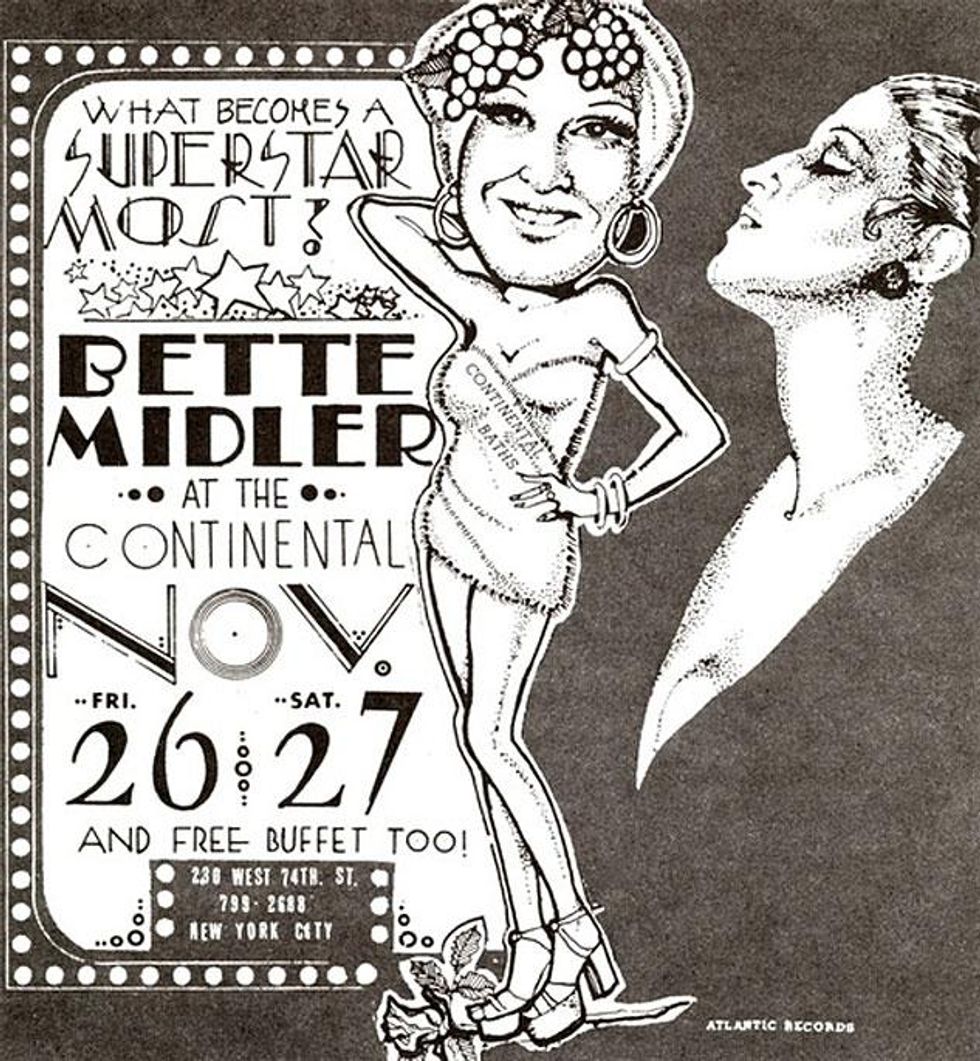
While the performer most associated with performing there was Midler, a surprising number of other performers made their way to the gay sex palace to entertain the troops: Peter Allen, the Andrews Sisters, Jim Bailey, Teresa Brewer, Cab Calloway, Nell Carter, Chubby Checker, Natalie Cole, Barbara Cook, Jackie Curtis, Alice Faye, Totie Fields, Connie Francis, Lesley Gore, Dick Gregory, Jobriath, Andy Kaufman, Gladys Knight and the Pips, Frankie Knuckles, Labelle, Dorothy Lamour, the Manhattan Transfer, Phyllis Newman, the New York Dolls, Anita O'Day, the Pointer Sisters, Johnnie Ray, Martha Raye, Minnie Riperton, Lillian Roth, Kay Starr, Elaine Stritch, Yma Sumac, Sarah Vaughan, Margaret Whiting, and Holly Woodlawn, among many others.
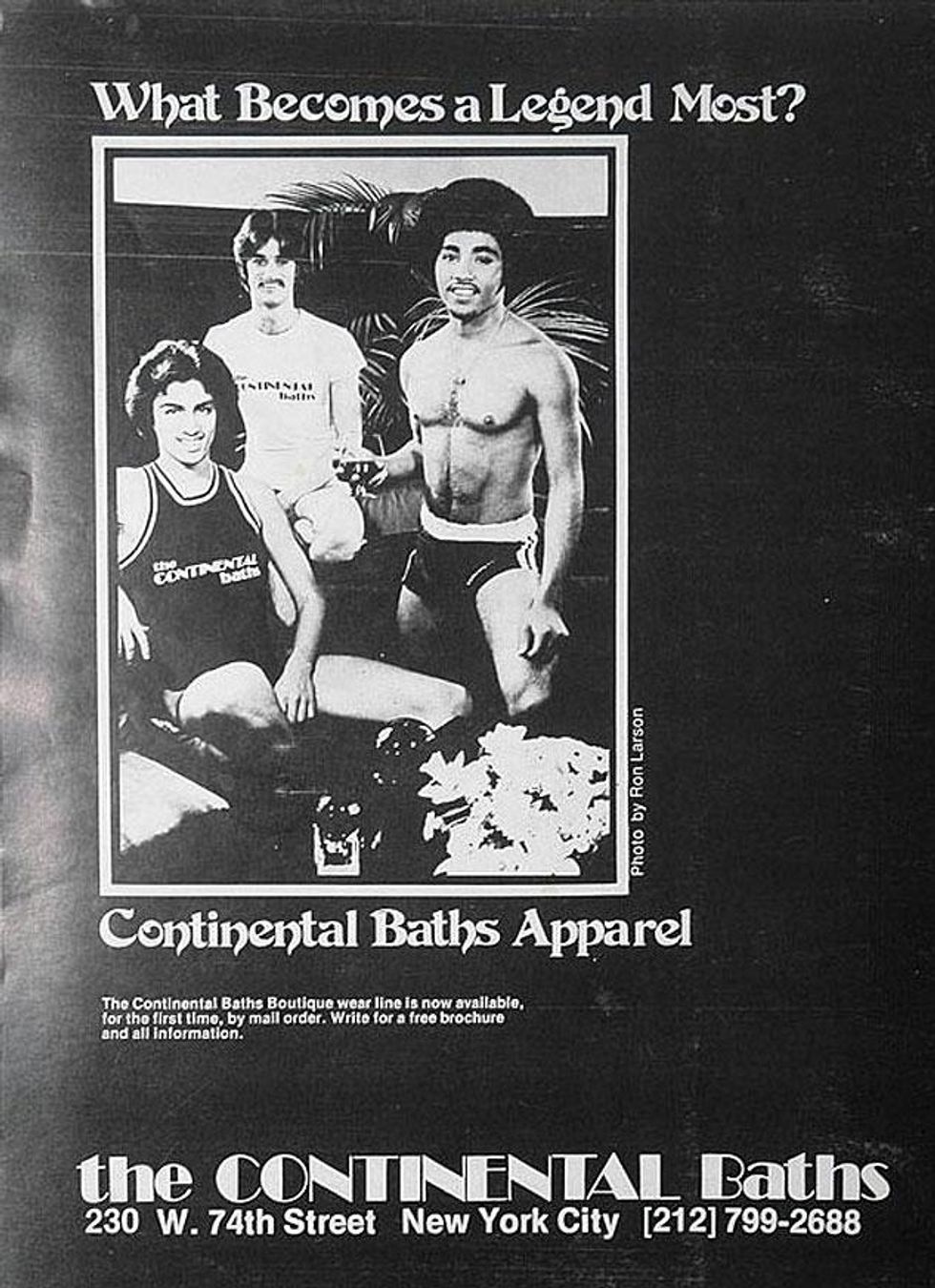
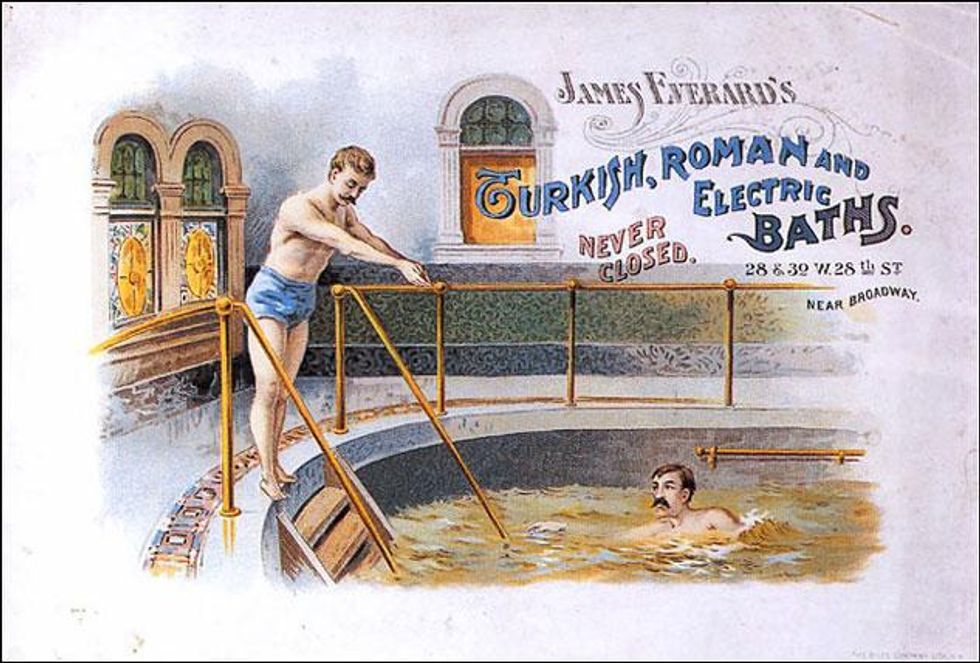
The Everard was founded by James Everard, who had already amassed a small fortune with his brewery on 135th Street in NYC. Meant as a health retreat for men, it saw arrests for lewd behavior as early as 1919. By the '20s it was known primarily as a gay meeting place for sex and community. Two large green lanterns outside were said to resemble police precinct lights, but queer historians speculate that green was a code color for homosexual men as far back as Oscar Wilde's green carnations.
Because the bathhouse had an almost 100-year life span, many famous gay men from all walks of life were reportedly habitues: Alfred Lunt, Lorenz Hart, Charles James, Gore Vidal, Rudolf Nureyev, Truman Capote, and Ned Rorem.
In May of 1977, nine men died in a fire at the Everard thanks to an outdated sprinkler system and ancient building codes. Firemen reported that fighting the blaze was made more difficult by panels covering the windows. Even though the top two floors of the building were destroyed, the Everard reopened only to be closed a few years later by gay New York mayor Ed Koch as a response to the AIDS epidemic.
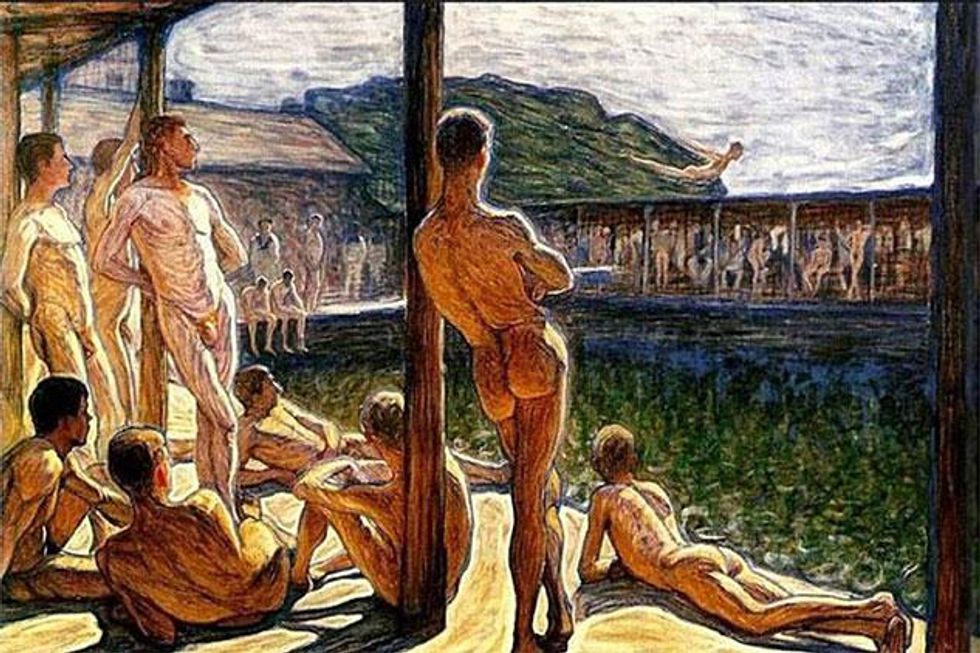
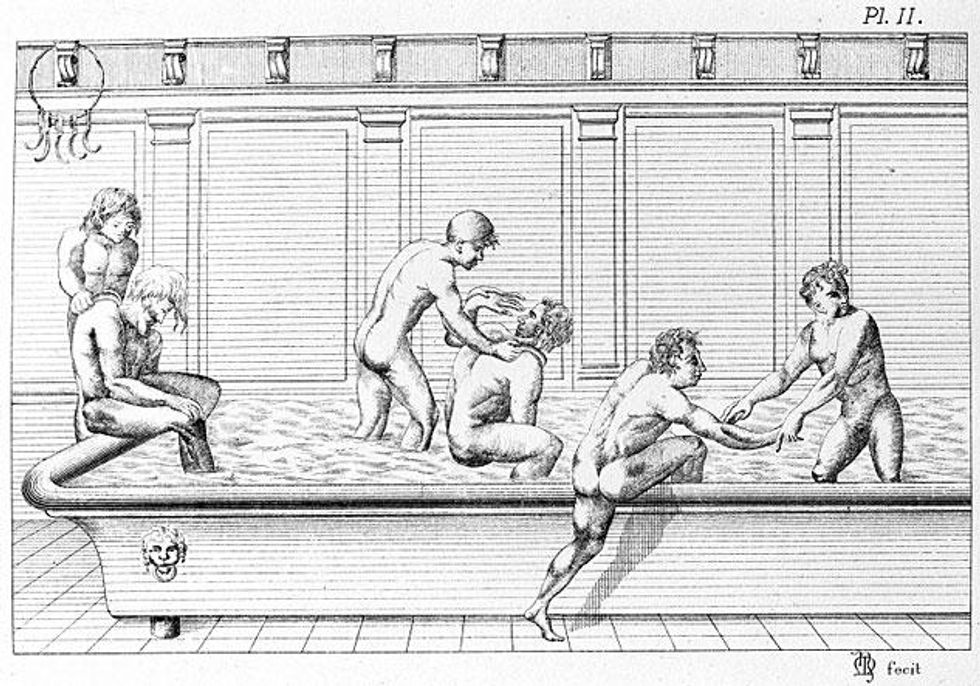
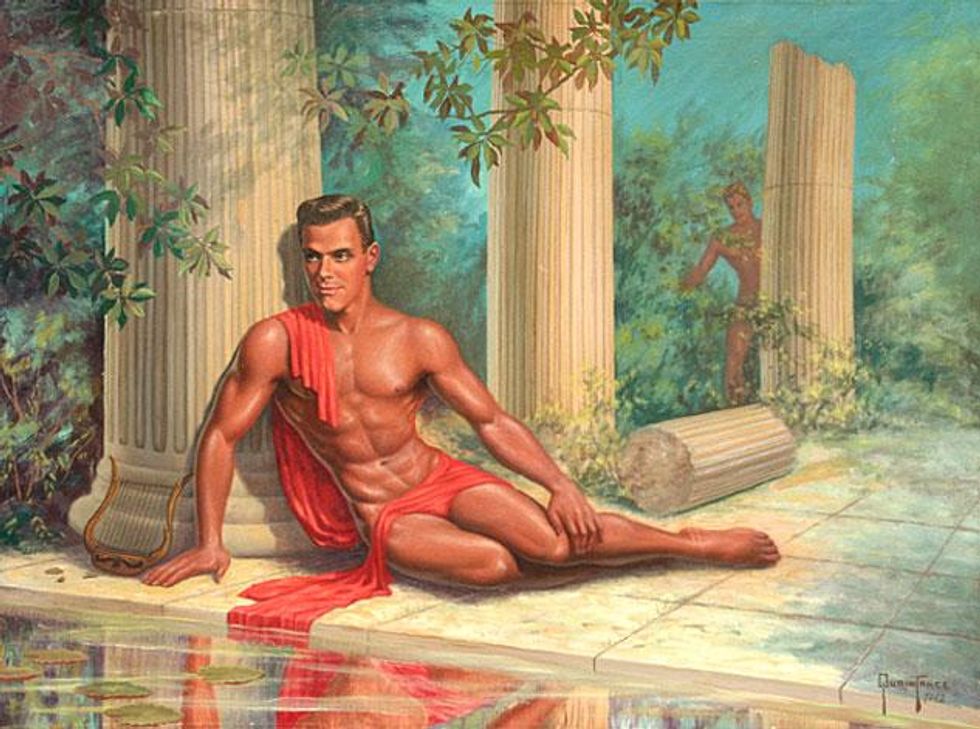
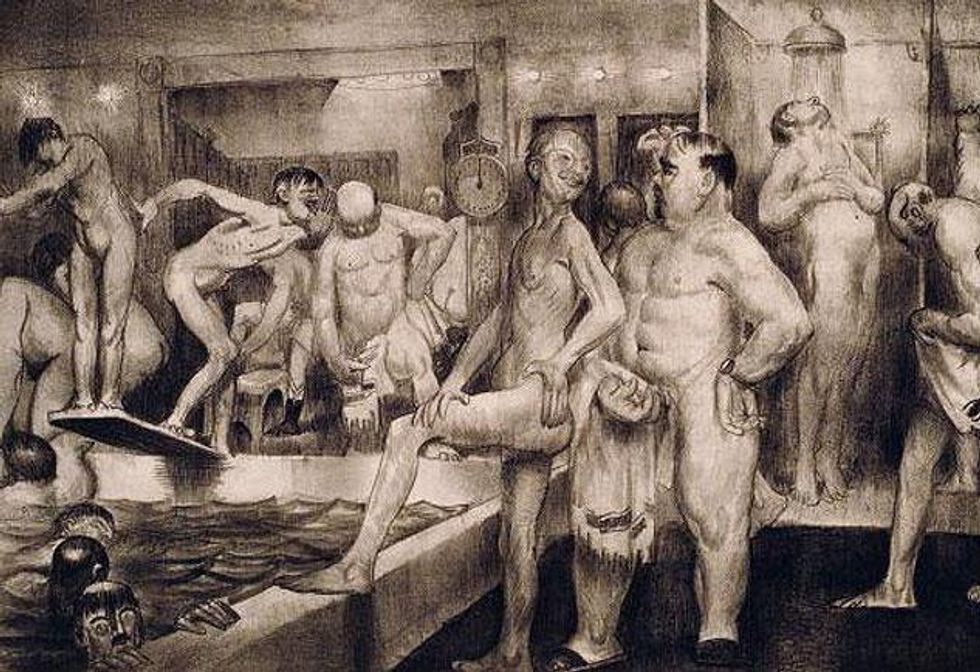
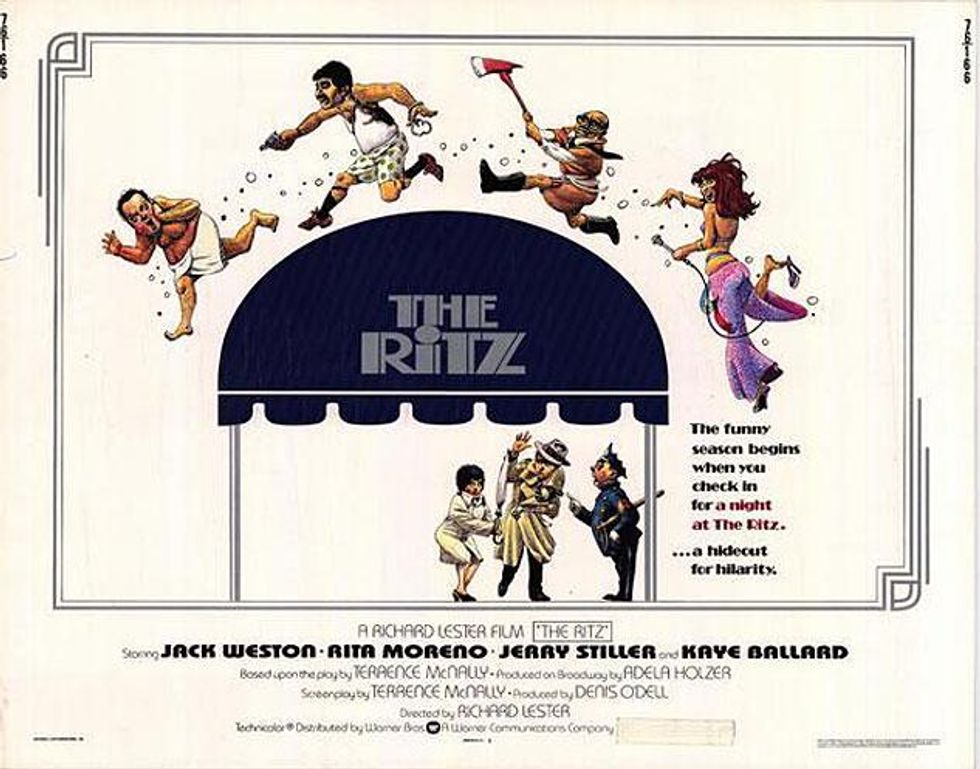
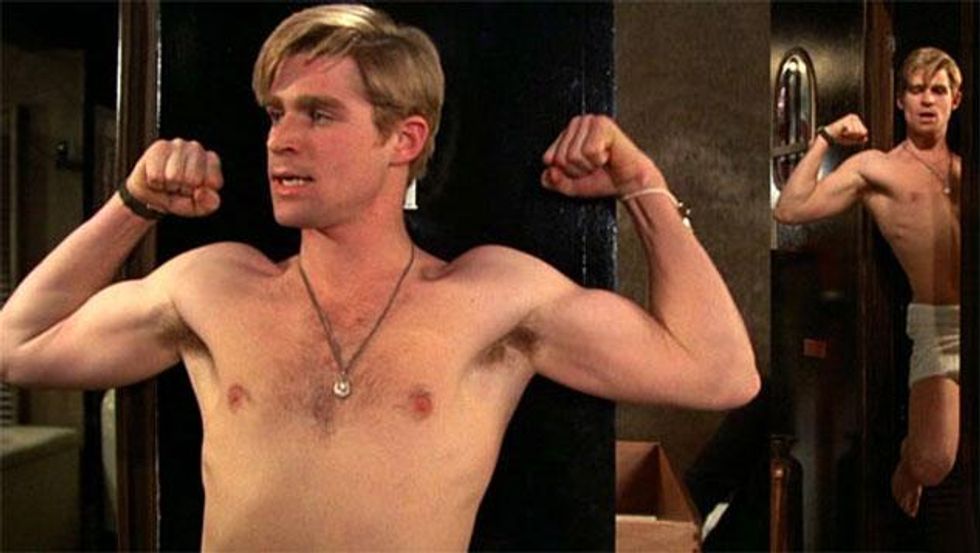
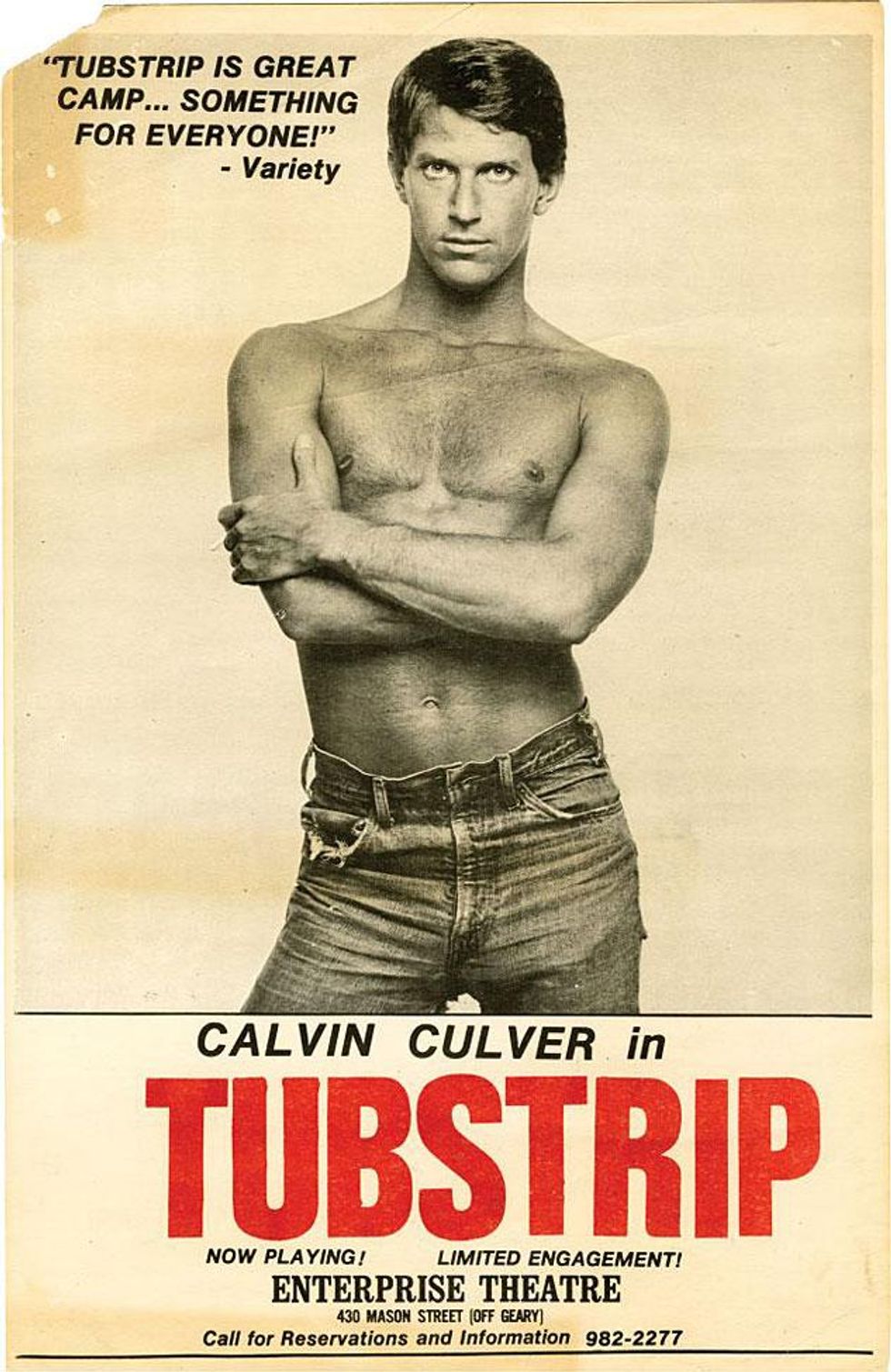
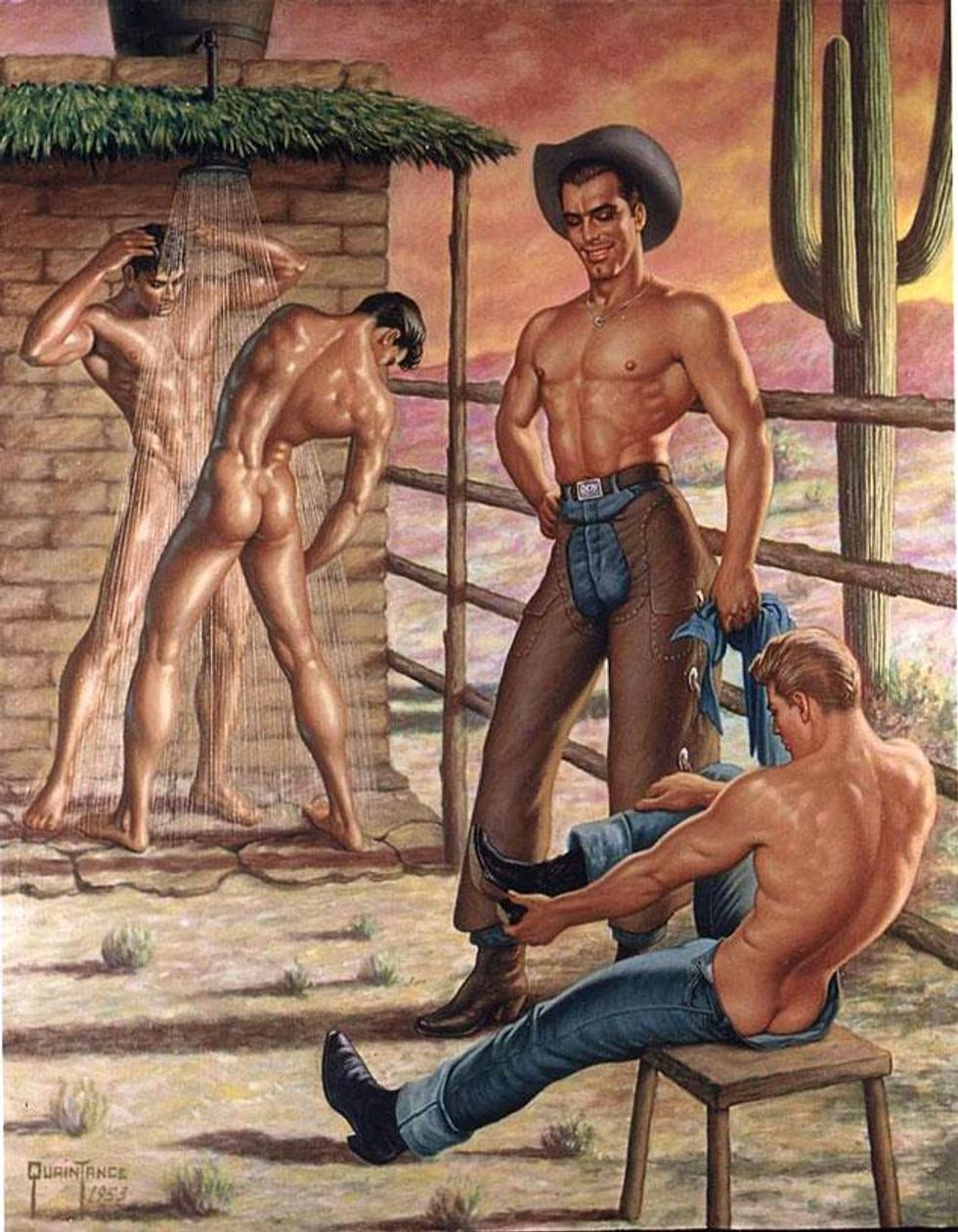
Charlie Kirk DID say stoning gay people was the 'perfect law' — and these other heinous quotes